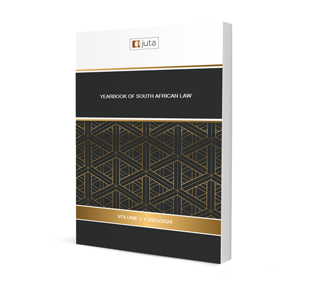Children’s Law

Children’s Law
Author Amanda Barratt
ISBN: 978 148515 163 0
Affiliations: BA (Hons) (UCT) LLB LLM (SA) PhD (UCT); Associate Professor in Private Law, University of Cape Town
Source: Yearbook of South African Law, Volume 5, p. 119 – 156